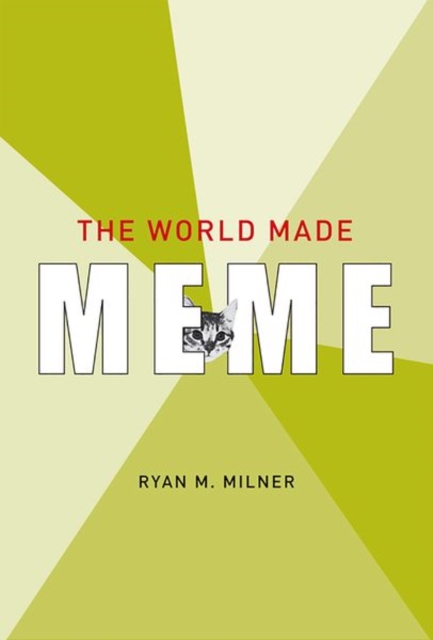
The World Made Meme : Public Conversations and Participatory Media Hardback
by Ryan M. (Assistant Professor, College of Charleston) Milner
Part of the Information Society Series series
Hardback
Description
How memetic media-aggregate texts that are collectively created, circulated, and transformed-become a part of public conversations that shape broader cultural debates. Internet memes-digital snippets that can make a joke, make a point, or make a connection-are now a lingua franca of online life.
They are collectively created, circulated, and transformed by countless users across vast networks.
Most of us have seen the cat playing the piano, Kanye interrupting, Kanye interrupting the cat playing the piano.
In The World Made Meme, Ryan Milner argues that memes, and the memetic process, are shaping public conversation.
It's hard to imagine a major pop cultural or political moment that doesn't generate a constellation of memetic texts.
Memetic media, Milner writes, offer participation by reappropriation, balancing the familiar and the foreign as new iterations intertwine with established ideas.
New commentary is crafted by the mediated circulation and transformation of old ideas.
Through memetic media, small strands weave together big conversations.
Milner considers the formal and social dimensions of memetic media, and outlines five basic logics that structure them: multimodality, reappropriation, resonance, collectivism, and spread.
He examines how memetic media both empower and exclude during public conversations, exploring the potential for public voice despite everyday antagonisms.
Milner argues that memetic media enable the participation of many voices even in the midst of persistent inequality.
This new kind of participatory conversation, he contends, complicates the traditional culture industries.
When age-old gatekeepers intertwine with new ways of sharing information, the relationship between collective participation and individual expression becomes ambivalent.
For better or worse-and Milner offers examples of both-memetic media have changed the nature of public conversations.
Information
-
Available to Order - This title is available to order, with delivery expected within 2 weeks
- Format:Hardback
- Pages:272 pages, 80 b&w illus.; 160 Illustrations, unspecified
- Publisher:MIT Press Ltd
- Publication Date:07/10/2016
- Category:
- ISBN:9780262034999
Information
-
Available to Order - This title is available to order, with delivery expected within 2 weeks
- Format:Hardback
- Pages:272 pages, 80 b&w illus.; 160 Illustrations, unspecified
- Publisher:MIT Press Ltd
- Publication Date:07/10/2016
- Category:
- ISBN:9780262034999










